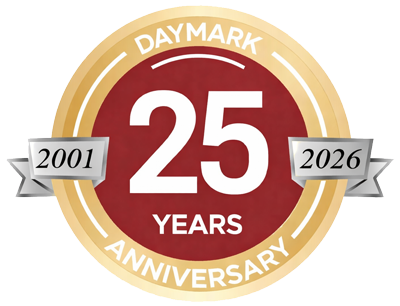
In today’s data-driven economy, organizations are expected to leverage their data assets not only for strategic decision-making but also for regulatory compliance, security, and operational agility. With the exponential growth of data across services, platforms, and business units, maintaining visibility and control over an enterprise data estate is becoming more complex and more critical.
Enter Microsoft Purview in Microsoft Fabric: a unified solution that brings governance, compliance, and data insights into the center of your Microsoft ecosystem. With the integration of Microsoft Purview directly into Microsoft Fabric via the Purview Hub, businesses now have a single pane of glass to manage, monitor, and secure their data across the enterprise.
Centralized Data Governance for Fabric-Driven Organizations
The Microsoft Purview Hub, now available in preview, is a governance command center within Microsoft Fabric. Designed for Fabric administrators, it provides a comprehensive view of an organization's data landscape, offering insights into:
- Sensitivity labels to track and protect confidential data
- Endorsement reports to highlight trusted datasets for reuse
- Domain assignments for organizing data by business function or area
- Exploration tools to track assets across workspaces and capacities
With these capabilities, organizations can go beyond traditional IT oversight to enable data democratization. This empowers business units and analysts to find, understand, and responsibly use data while maintaining compliance and governance controls.
Business Use Cases That Benefit from Purview + Fabric
Let’s break down how this integration can help business leaders and teams achieve operational and strategic goals.
- Enhancing Compliance Posture
If you're in a regulated industry such as healthcare, finance, or government, Microsoft Purview enables automated tagging of sensitive data across your Fabric environment. Using Information Protection and Data Loss Prevention (DLP) policies, you can:
- Automatically identify sensitive data types like SSNs, credit cards, or health information
- Apply sensitivity labels that persist even when data is exported or shared
- Generate compliance reports to meet audit requirements
This reduces compliance risk, ensures data handling is consistent across the organization, and saves significant time during audits.
- Promoting Data Reuse Through Trust and Visibility
With features like item endorsement, Fabric users can easily discover datasets that have been certified or promoted by trusted data stewards. This builds a culture of transparency and encourages reuse of existing, high-quality datasets, eliminating duplication of effort and improving report accuracy.
For example, a financial planning team can quickly locate and leverage a certified sales performance dataset from the marketing team instead of building a separate model from scratch.
- Accelerating Cross-Team Collaboration
The Purview Unified Catalog provides live metadata visibility across Microsoft Fabric and other services in the same or even across tenants. This creates a map of your data estate that supports data lineage tracing, which is essential for understanding dependencies between upstream sources and downstream reports.
Business analysts, data scientists, and compliance officers can all work from the same source of truth, boosting alignment and reducing costly misinterpretations or inconsistencies.
- Security Insights and Operational Monitoring
Using Purview Audit, administrators gain visibility into how data is accessed and used across Fabric. This includes activities involving sensitivity labels, DLP policy violations, and user behavior within Power BI semantic models. This allows businesses to:
- Identify insider threats
- Track data access patterns
- Optimize governance policies based on real usage trends
This level of operational intelligence strengthens your data security posture while informing process improvements.
Seamless Integration: A Strategic Advantage
What sets Microsoft Purview apart is how natively and seamlessly it integrates with Microsoft Fabric. Instead of cobbling together third-party tools, business and IT leaders benefit from:
- A single governance model across Microsoft 365, Azure, on-prem, and multicloud data
- Streamlined administration through role-based access and Fabric-specific reports
- An evolving feature set with planned future enhancements for even deeper observability and control
By embedding governance directly into the tools that business users and data engineers already use, Microsoft is reducing friction and encouraging better data practices organically, without disrupting workflows.
Final Thoughts: A Business Case for Embedded Governance
Microsoft Purview in Microsoft Fabric is not just another compliance tool. It is a strategic enabler. For CIOs, CDOs, and data leaders, it offers a way to standardize governance without slowing innovation. For business users, it builds confidence in the data they use every day. And for organizations as a whole, it helps unlock the full value of enterprise data while mitigating risk.
In a world where data is both a business asset and a liability, embedding Purview into Fabric gives companies a defensible, scalable, and user-friendly way to stay ahead.
If your organization is using or considering Microsoft Fabric, activating Microsoft Purview Hub is a clear next step. It’s time to transform governance from a backend burden into a frontline business advantage.
If you have any questions, feel free to reach out to me on Linkedin!



